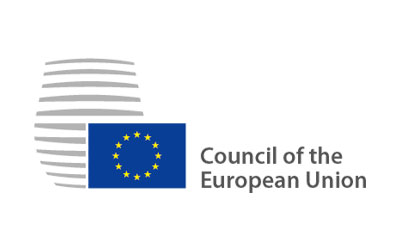As Industry leaders from across the sustainable biofuels value chain, we express our full support for ambitious climate and energy policies and the need to reduce GHG emissions from all modes of transport and industry.
We applaud the leadership of Brazil, India, Italy, and Japan for introducing the Belém 4X Pledge for Sustainable Fuels that creates a collective, global goal of quadrupling (4X) the use of sustainable fuels by 2035 from a 2024 baseline.
We recognize that this COP30 Global Sustainable Fuels Declaration builds on prior international statements, efforts, and initiatives to enable the use of sustainable biofuels to reduce emissions from all modes of transport and industry sectors, including inter alia:
- International Energy Agency Report on Delivering Sustainable Fuels: Pathways to 2035[1]
- Turin Joint Statement on Sustainable Biofuels,
- Clean Energy Ministerial Future Fuels Action Plan,
- International Civil Aviation Organization efforts to achieve Net-Zero Aviation,
- Industrial Deep Decarbonization Initiative,
- Global Biofuels Alliance,
- Clean Energy Ministerial Biofuture Platform Initiative, and
- Biofuture Industry Council.
We acknowledge that despite these efforts, much more must be done at the international, national, and sub-national level to realize the potential for sustainable biofuels and bio-based chemicals and materials to reduce emissions from transportation and industry; and as such,
We endorse the Belém 4X Pledge for Sustainable Fuels and call upon the countries of the Clean Energy Ministerial Biofuture Platform Initiative to significantly strengthen both international collaboration and national efforts to:
- Increase the use of Sustainable Biofuels and Bio-based Chemicals to reduce GHG emissions for all modes of transport and industry
- Fully support the spirit and joint actions inspired by the COP30 Global Sustainable Fuels Declaration
In support of this Call to Action:
We recommend that countries recognize the considerable benefits from a vigorous sustainable biofuels and bio-based chemicals sector and value chains, including inter alia:
- Increasing energy security, by diversifying energy sources, reducing fuel import dependence, and advancing domestic production.
- Ease integrating into existing logistics, storage and distribution.
- Promoting a culture of circular economy, resilience, and local value creation with well-designed, sustainable bio-based fuels, chemicals, and materials supply chains providing opportunities for local employment and growth.
- Supporting the transition to more sustainable agriculture, sequestering carbon in soil, and delivering food, feed and energy via policies that reward farmers for implementing best-practices in sustainable, carbon-neutral (or -negative) agriculture and forestry.
- Supporting the shift to a net zero future for hard to abate sectors and essential everyday products used by billions of people.
We recommend that countries consider the following Principles when working to increase the production and use of sustainable biofuels and bio-based chemicals by 2035:
General Guidance
- View sustainable bio-based products and related value chains among the main pillars of de-carbonising aviation, maritime, road transport, heavy industry, household energy, and chemicals, alongside electrification, energy efficiency, and other sustainable fuels.
- Recognise that the role of each bio-based technology will vary over time and vary by country, as a reflection of its own resources, national context, and sustainable development priorities.
- Recognise that sustainable bio-based fuels and chemicals can contribute to systematic solutions to reduce GHG emissions, while generating co-products in the bio- and circular-economy area, recovering/reducing wastes, and utilizing residues.
- Recognise the importance of assessing lifecycle GHG emissions from the road sector for the entire life cycle[2], including raw material extraction, vehicle manufacturing, use and disposal or recycling, to realize a highly decarbonized road sector.
Policy Best Practices
- Design and implement long-term policies that create predictable demand for sustainable fuels, chemicals and materials, to facilitate the investments needed for the widespread deployment of innovative, sustainable bio-based technologies and value chains.
- Implement technology-neutral, feedstock-agnostic, evidence-based policies that enable GHG emissions reductions from aviation, maritime and road transport based on a full Life-Cycle Assessment (LCA) approach that recognizes carbon-negative solutions.
- Advance a business-conducive, evidence-based regulatory framework that rewards GHG emission reductions across aviation, maritime, and road transport, while avoiding explicit or implicit bans on breakthrough emissions reduction technologies.
- Develop public procurement mechanisms to increase demand, as has been done in other sectors like steel and cement.
- Build consensus and improve interoperability in the use of carbon accounting and sustainability standards in policymaking[3], to reduce regulatory burdens, facilitate trade and increase confidence among consumers, policymakers, and investors regarding the benefits of biofuels across different feedstocks, technology platforms, products and regions.
- Empower consumers (B2B and private) to choose low-emissions and circular products, based on transparent product sustainability assessments, and lead the way through public procurement and private buyer initiatives.
Fostering Innovation and an Enabling Environment
- Foster innovation across the bioeconomy to expand biomass feedstock supply through innovation in agricultural markets and value chains such as the adoption of sustainable agricultural practices, such as crop rotations, cover-cropping, inter-cropping, multi-cropping, yield improvements, and crop production on marginal and degraded lands, and to commercialize new technologies that can convert a wider range of feedstocks including agricultural and woody residues into biofuels.
- Foster the productive synergies between biofuels/bio-based chemicals, hydrogen, and carbon capture usage and storage.
- Support capacity-building initiatives and knowledge-sharing platforms to facilitate technology transfer, skills development, and best practices exchange among stakeholders across bio-based industries sector.
- Support value chain collaboration, implementing goal-oriented policies and regulations that bring together partners from the full value-chain (e.g., feedstock through to final products) to accelerate transformative projects at scale.
We stand ready to work with all stakeholders from governments, industries, and civil society to unlock the potential of the sustainable biofuels and bio-based chemicals as the world aims to fulfil its aim stated at COP28 of transitioning away from fossil fuels.
[1] https://www.iea.org/reports/delivering-sustainable-fuels
[2] E.g., Well-to-wheel
[3] For more information see the “Global Call to Action for Unlocking the Potential of Sustainable Fuels”




